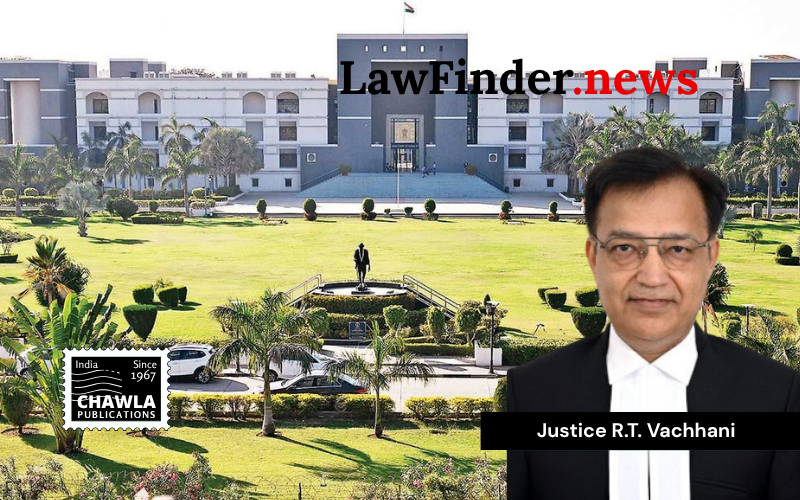Appellate Courts Not Empowered to Extend Surrender Time for Filing Revision Applications, Says High Court
In a significant judgment, the Gujarat High Court has clarified the limitations of appellate courts concerning the extension of bail and surrender periods for accused individuals intending to file revision applications. The ruling was made in the case of Girish Harsukhray Vasavada v. Shankarlal Govindji Joshi, where the petitioners sought relief from surrendering after their conviction and sentence were confirmed by the appellate court.
The case centered around the petitioners, Girish Harsukhray Vasavada and another, who were convicted under Section 342 of the Indian Penal Code, among other charges. They were sentenced to three months of simple imprisonment by the trial court, a decision that was upheld by the appellate court. Subsequently, the petitioners filed applications seeking to suspend the sentence and extend the bail to file revision applications before the Gujarat High Court.
Justice R. T. Vachhani, presiding over the matter, emphasized that once an appellate court affirms a conviction, it becomes functus officio-meaning it cannot alter its decision or extend the time for surrender beyond what is stipulated by law. The court noted that the statutory framework, particularly Section 418 of the Criminal Procedure Code, mandates immediate execution of the sentence unless otherwise provided for appeals, not revisions.
The court highlighted that the appellate court had erred in granting a 15-day stay of the sentence to allow the petitioners to approach a higher court. Justice Vachhani remarked that such actions are beyond the statutory powers of appellate courts and reiterated that only the High Court holds the authority to issue such orders post-appeal disposal.
The judgment also addressed the petitioners' claims regarding typographical errors in the charges, suggesting that such issues should be rectified through proper legal channels rather than exploited for relief. Additionally, the court dismissed arguments related to the petitioners' past service records and achievements, stating these were irrelevant to the legal question at hand.
The court's ruling reaffirms the procedural boundaries within which appellate courts must operate, emphasizing adherence to statutory provisions and the principle that appellate courts cannot extend bail or suspend sentences solely for the purpose of filing revision applications. The judgment is expected to serve as a precedent, guiding lower courts across Gujarat in similar cases.
Bottom Line:
Section 418 of CrPC/BNS 2023 mandates that, upon conviction and sentence, the appellate court becomes functus officio and cannot extend the time for surrender or grant bail solely to enable the accused to file a revision application.
Statutory provision(s): Section 418 of CrPC, Section 389(3) of CrPC, Probation of Offenders Act, Section 342 of IPC, Section 114 of IPC, Section 34 of IPC.
Girish Harsukhray Vasavada v. Shankarlal Govindji Joshi, (Gujarat) : Law Finder Doc Id # 2795526




